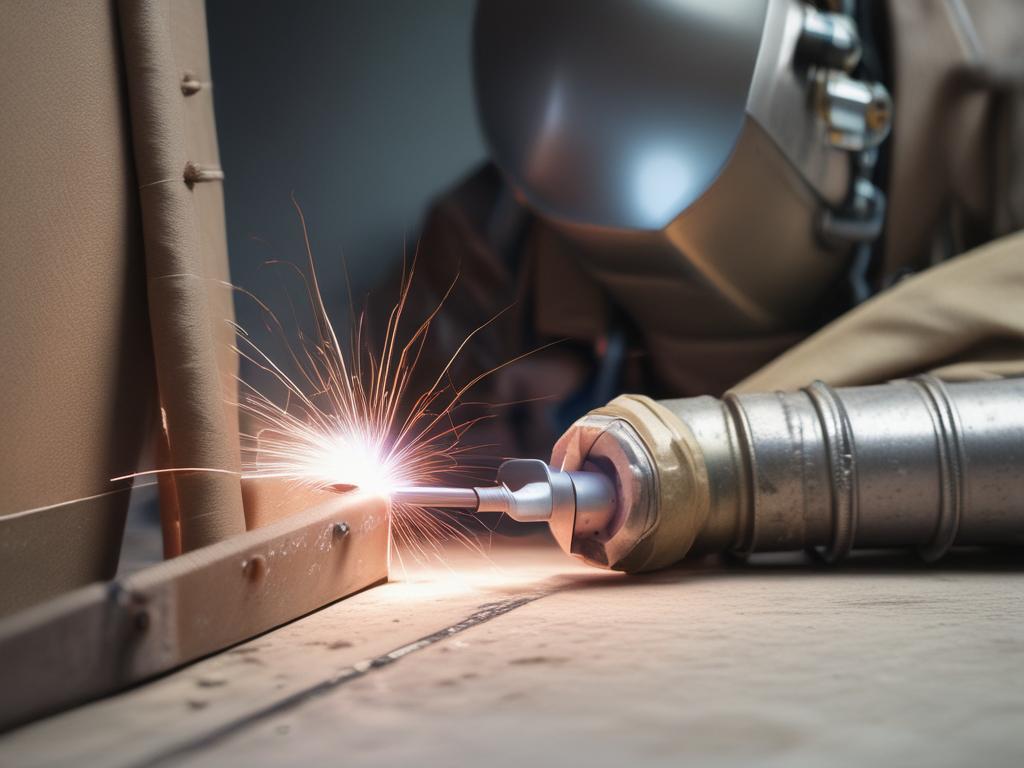
When it comes to structural steel welding, the choice of electrodes plays a critical role in ensuring strong, reliable welds. Engineers often have specific requirements based on the project at hand, and understanding these needs is essential for achieving optimal results. The right structural steel welding electrodes not only enhance the quality of the weld but also affect factors such as electrical conductivity, heat input, and overall performance. By diving into the reasons engineers ask for specific electrodes, we can better appreciate the intricate interplay between material properties and welding techniques.
In this blog post, we will explore the factors influencing the selection of structural steel welding electrodes, delve into the different types available, and highlight the benefits of choosing the correct electrode for each application. Whether you are a seasoned welder or a project manager overseeing structural steel fabrication, understanding these elements will equip you with the knowledge needed to make informed decisions in the field of welding. Let's uncover the important role that structural steel welding electrodes play in the success of welding projects and the long-term durability of steel structures.
Factors influencing the choice of structural steel welding electrodes
Engineers consider several factors when selecting structural steel welding electrodes to ensure the integrity and longevity of welded structures. One of the primary considerations is the type of structural steel being used. Different steel grades have varying chemical compositions and mechanical properties that respond differently to welding processes. For instance, some steels require electrodes that can handle higher tensile strengths or provide better ductility to mitigate the risks of cracking during the cooling phase. Recognizing these attributes allows engineers to choose electrodes that complement the material properties, thus enhancing the quality of the welds.
Another critical factor is the welding technique being employed. Engineers assess whether they will use shielded metal arc welding (SMAW), gas metal arc welding (GMAW), or flux-cored arc welding (FCAW), as each method demands specific types of electrodes. Additionally, environmental conditions come into play; for example, outdoor welding applications may require electrodes that resist moisture and contaminants. By thoroughly evaluating these factors, engineers can make informed decisions about which structural steel welding electrodes will deliver the best performance for their project.
Types of structural steel welding electrodes and their applications
When it comes to welding structural steel, engineers have a variety of electrode types at their disposal, each designed for specific applications. Common types include E70XX electrodes, which are widely used due to their balanced mechanical properties and ease of use. These electrodes excel in producing high-quality welds on mild steel and can operate effectively in various positions, making them versatile for many structural projects. For specialized tasks, such as welding steels with a higher carbon content, E80XX electrodes may be chosen for their superior strength and increased hardness, which ensures durability in high-stress applications.
In addition to standard options, engineers often select low-hydrogen electrodes like E7018 for their ability to minimize defects like cracking and porosity. These electrodes are crucial in applications where weld integrity is paramount, such as in bridges or high-rise buildings. Furthermore, alloy-specific electrodes, such as E309 for stainless steel, cater to unique requirements in joining dissimilar metals. By understanding the specific materials and conditions of their projects, engineers can effectively choose the right structural steel welding electrodes to enhance the stability and longevity of their constructions.
Benefits of selecting the right structural steel welding electrodes
Selecting the appropriate structural steel welding electrodes greatly enhances the quality of the weld joint. The right electrodes ensure that the welds achieve optimal mechanical properties and proper fusion with the base material. By using the specified electrodes, engineers can mitigate issues such as inadequate penetration, excessive spatter, and uneven weld profiles. This not only extends the lifespan of the structure but also improves safety, as strong and reliable welds are critical in load-bearing applications. Ensuring the correct electrode composition tailored to the specific type of structural steel reinforces the structural integrity required in various constructions.
Additionally, choosing the right electrodes contributes to increased efficiency during the welding process. Different electrodes have distinct deposition rates and arc stability characteristics, affecting overall productivity. For instance, using low-hydrogen electrodes can minimize the risk of hydrogen-induced cracking, which is particularly important in high-strength structural steels. This results in decreased rework or the need for inspections due to weld failures, saving both time and resources. Ultimately, by prioritizing the correct choice of structural steel welding electrodes, engineers can achieve high-quality results while optimizing workflow, ensuring that projects are completed on budget and on time.


